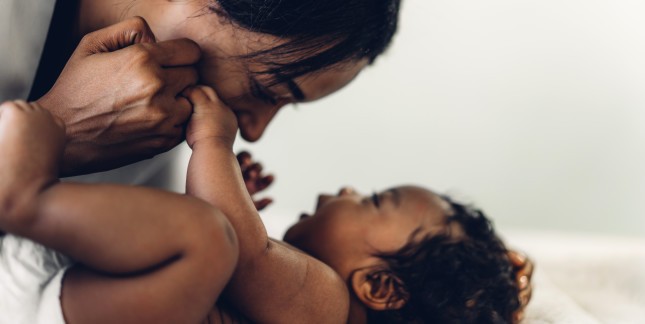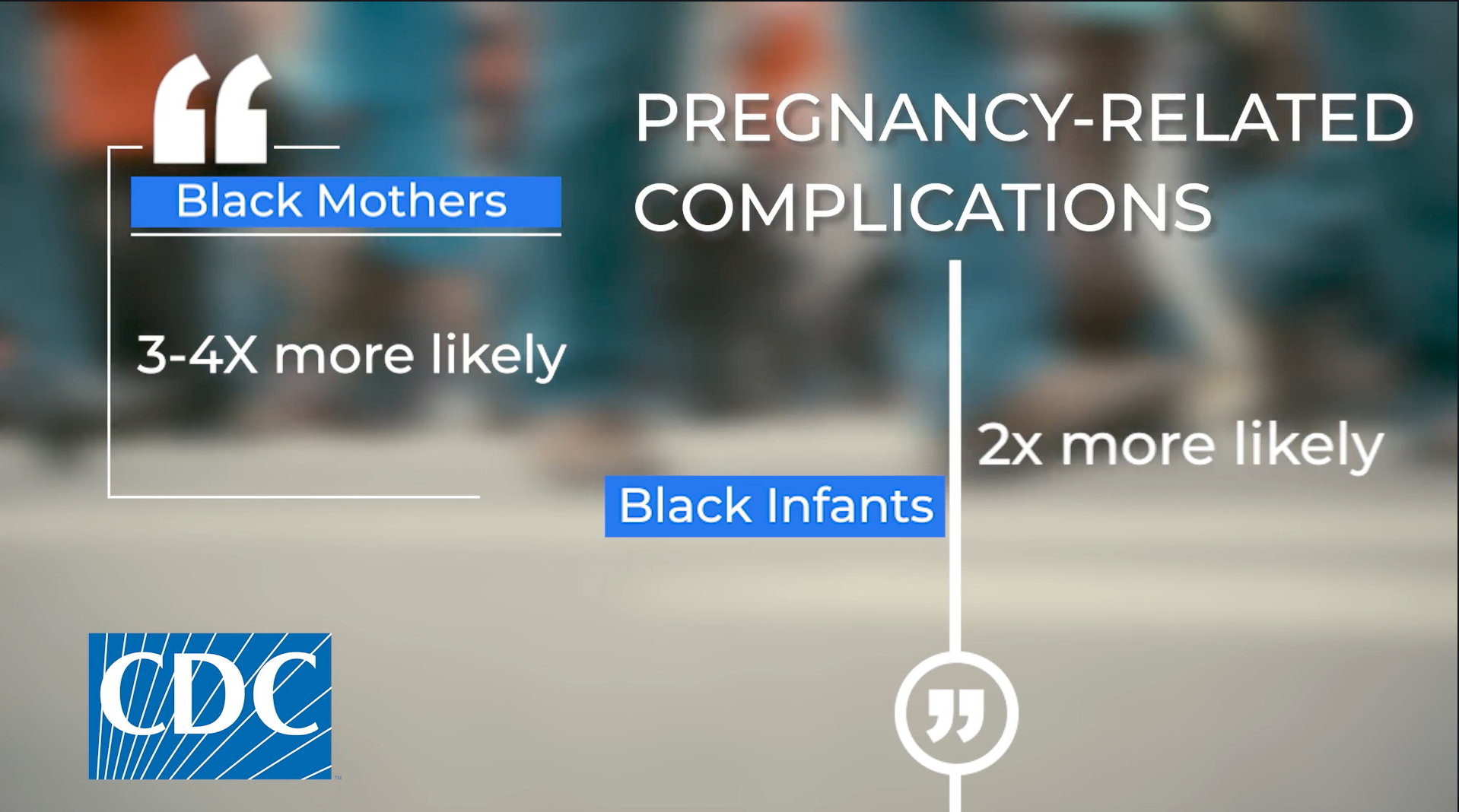Reducing Maternal Health Disparities
Data from the Kaiser Family Foundation indicates Black women are three times more likely to die from pregnancy or birth complications when compared to white women. Groups collaborating in Durham and the Sandhills region draw on community resources and programs to improve the health and wellbeing of Black mothers and their children.

The Problem
Maternal health outcomes in the United States tend to be better than those in developing nations. However, aggregate data mask disparities between segments of the population, most notably outcomes for Black and white women. Data from the Kaiser Family Foundation indicates Black women are three times more likely to die from pregnancy or birth complications when compared to white women. The same study revealed that Black infants are twice as likely to die during the first year of life as white infants.
Many undesirable maternal outcomes are preventable for both mother and baby. Simple procedures that could save the life of a mother or a child may not be provided for Black women if healthcare providers disregard their voices and symptoms. Recently, advocacy groups and health departments have been stepping up to ensure that Black mothers receive the same level of care and access to the same resources and information as white mothers.
The Solution
One strategy to reduce maternal health disparities and improve maternal care involves increasing awareness and access to doulas. A doula is “a trained professional who provides continuous physical, emotional and informational support to a mother before, during and shortly after childbirth to help her achieve the healthiest, most satisfying experience possible.” Doulas help mothers, especially Black mothers, advocate for themselves and their needs during pregnancy and childbirth. Given their training and experiences with mothers, doulas can help recognize issues in a pregnancy and seek help when a mother may not know what to do.
In Durham, the non-profit MAAME (Mobilizing African American Mothers through Empowerment) works to connect mothers of color with doulas. MAAME works to make sure that mothers receive healthcare and refers them to specialists if any high-risk needs present themselves. MAAME also works in conjunction with another non-profit in Durham, Equity Before Birth (EBB), to support Black mothers financially. EBB offers sponsorships for mothers to have paid parental leave, even if their place of work doesn’t allow for paid time off. This time in an infant’s life is crucial for development and enabling mothers to take time off from work to spend with their newborns increases the overall wellbeing of both mother and child.
The Players
Many communities find a collaborative approach to addressing maternal health is a productive way to share information with mothers. One such collaborative, Improving Community Outcomes for Maternal and Child Health (ICO4MCH) works with four Sandhills counties, Hoke, Montgomery, Richmond, and Scotland, to provide new mothers with information about breastfeeding. In recent years, more mothers chose to breastfeed their child, which provides numerous benefits. But resources on how to breastfeed and support when it becomes difficult have been rare, especially for Black and Latina mothers.
The collaborative works to collect resources from all four counties and distribute them to mothers. The end result of this work has been a closer relationship between leaders of the counties, who collaborate and share ideas with one another about policies and best practices related to maternal health. Tangible results of the collaboration are evident in Richmond County Schools. Each of the district’s 15 schools has a private, breastfeeding station for teachers who may need to access it during the school day. The Richmond County administration and principals support teachers returning to work after maternity leave by arranging coverage for their classes when they need to use the breastfeeding facilities.
The Promise
Groups in Durham and the Sandhills region draw on community resources and programs to improve the health and wellbeing of mothers and their newborn children. In Durham, even surrounded by some of the best healthcare facilities in the state, Black mothers often may not have access to adequate medical care. By providing training for doulas and increasing community awareness of their benefits, MAAME hopes to close the health outcome gap and provide increased levels of support to Black mothers when they need it most.
Similarly, ICO4MCH hopes to provide maternal resources, specifically about breastfeeding, to mothers of color in the Sandhills region. Providing these resources not only helps to create a more educated community, but also helps improve health outcomes for infants and developmental outcomes for children when they grow older. These two organizations providing resources and support for mothers who may not have had it in the past. Supporting mothers helps them feel less isolated in what they are experiencing and reduces negative health outcomes.



